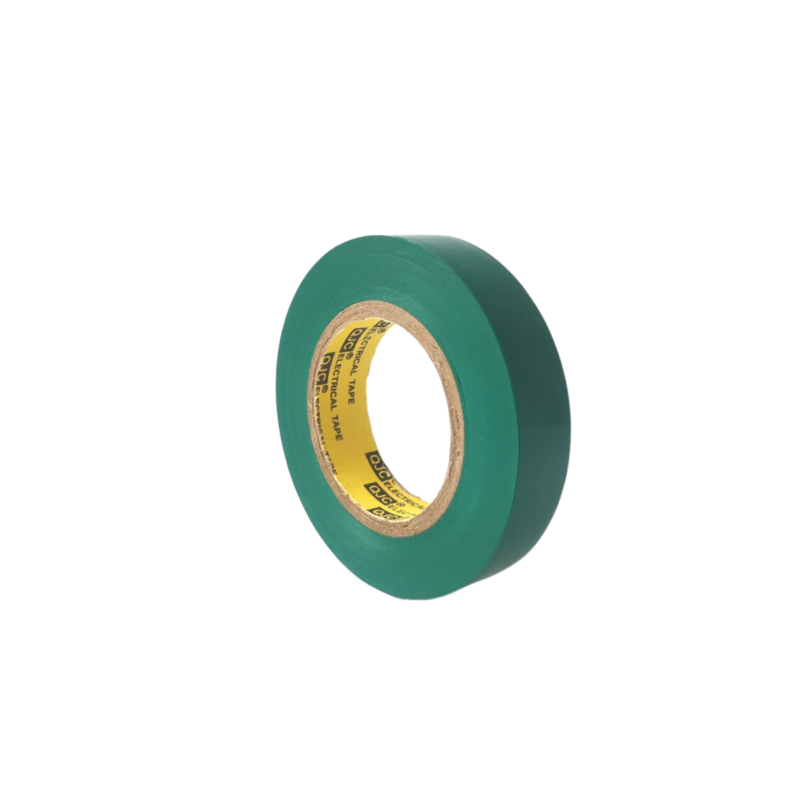Understanding Different Types of Insulation Tape
Insulation tape is an essential tool in various fields, including electrical work, construction, and even home repairs. It serves the crucial purpose of insulating electrical wires and components, preventing short circuits, and enhancing overall safety. With numerous options available on the market, it’s important to understand the different types of insulation tape and their specific applications. This article will delve into the various types of insulation tape, their characteristics, and the ideal situations for their use.
1. PVC Insulation Tape
Polyvinyl Chloride (PVC) insulation tape is one of the most popular types used in electrical applications. Known for its flexibility and durability, PVC tape is resistant to moisture, chemicals, and UV exposure. It is often available in a range of colors, which can be beneficial for color-coding wiring systems. This type of tape is suitable for both indoor and outdoor use and can withstand temperatures ranging from -10°C to 80°C (14°F to 176°F). Its properties make it an excellent choice for insulation in residential and commercial electrical work.
2. Rubber Insulation Tape
Rubber insulation tape is another significant option, primarily known for its self-fusing capabilities. When stretched and applied, the tape bonds to itself, creating a solid and long-lasting seal that is resistant to moisture and high temperatures. Rubber tape is particularly useful for insulating irregular shapes and providing additional protection against the elements. It is commonly used in electrical applications where flexibility and a tight seal are paramount, such as when wrapping wires and repairing damaged electrical insulation.
insulation tape types

Aluminum foil insulation tape is primarily used for thermal insulation. Its metallic surface reflects heat and cold, making it a great choice for HVAC applications, insulating ducts, and sealing thermal insulation. Foil tape typically has a strong adhesive that sticks well to both clean and rough surfaces. It is resistant to heat and moisture, which makes it ideal for sealing insulation materials or protecting against vapor. However, it is not suitable for electrical applications as it does not provide electrical insulation.
4. High-Temperature Insulation Tape
As the name implies, high-temperature insulation tape is designed to withstand much higher temperatures than standard insulation tapes. Made with specialized materials like silicone or glass fiber, these tapes can endure temperatures exceeding 200°C (392°F). They are often used in industrial environments, such as in motors, transformers, and other high-heat applications. This type of tape ensures reliable insulation and protects electrical components from extreme heat radiation.
5. Electrically Conductive Tape
While most insulation tapes aim to prevent the flow of electricity, electrically conductive tape is designed to facilitate it. This tape is typically used in applications where grounding or electromagnetic shielding is necessary. It is made from conductive materials such as carbon or metal nylon. Its primary function is to create a path for electrical currents, helping to reduce electromagnetic interference and maintain function in sensitive electronic devices.
Conclusion
In conclusion, the choice of insulation tape depends on the specific application and the environmental conditions it will face. Understanding the differences between PVC, rubber, foil, high-temperature, and electrically conductive tapes ensures that users select the best product for their needs. Whether you are working on a small home project or a large industrial installation, the right insulation tape can contribute significantly to the safety and efficiency of your work. With this knowledge, you can make informed decisions and ensure that your electrical systems are well-protected and functioning optimally. Always remember to consider the temperature, moisture, and specific electrical requirements when selecting insulation tape for your projects.
-
XIANGFAN Rubber Tape-Ultimate Solutions for All Your Insulation NeedsNewsJun.24,2025
-
XIANGFAN Rubber Tape-Protection for Industrial and Residential ApplicationsNewsJun.24,2025
-
XIANGFAN Rubber Tape: Superior Safety and Sealing for Demanding EnvironmentsNewsJun.24,2025
-
XIANGFAN Rubber Tape: Reliable Solutions for Every Electrical ChallengeNewsJun.24,2025
-
XIANGFAN Electrical & Industrial Tape: Powering Reliability Across IndustriesNewsJun.24,2025
-
XIANGFAN Electrical & Industrial Tape: Excellence in Every ApplicationNewsJun.24,2025
